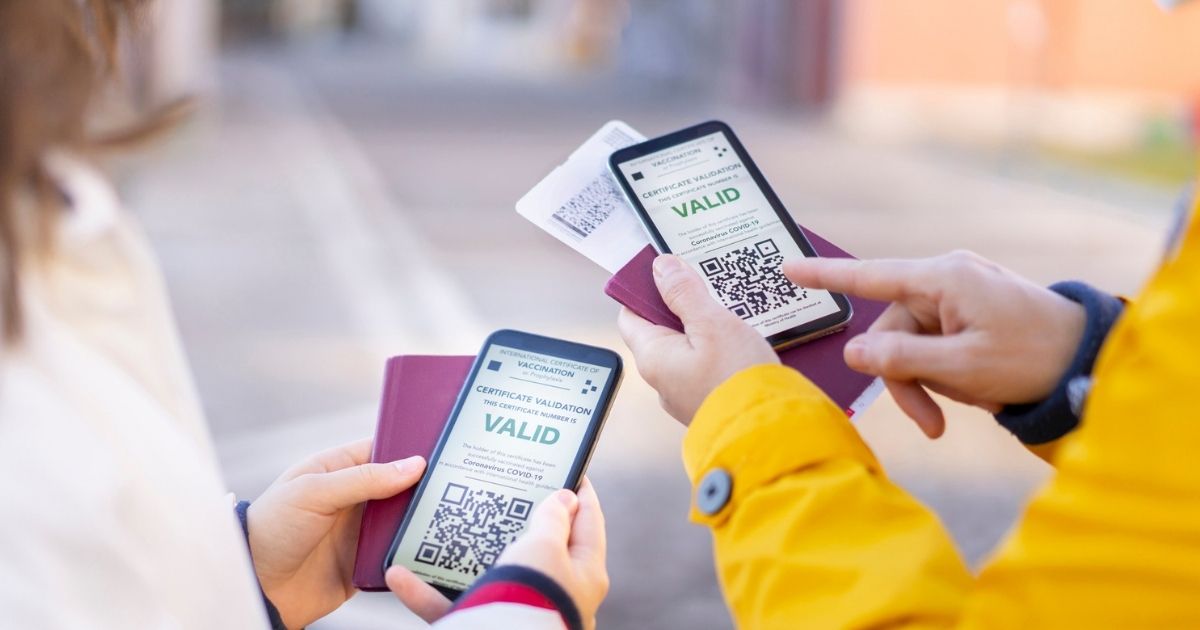
Digital Health Passports: Safe Travel After the Pandemic
Digital health passports have emerged as a potential solution to enable safe and seamless travel in a post-pandemic world. These passports, which typically consist of digital records verifying an individual’s vaccination status and COVID-19 test results, aim to streamline travel processes and restore confidence among travelers. In this article, we explore the concept of digital health passports and provide insights from two experts in the field.
Dr. Sarah Anderson, a renowned public health specialist, offers insights into the concept of digital health passports and their role in facilitating safe travel. Anderson emphasizes that digital health passports have the potential to play a crucial role in reopening travel while ensuring public health and safety.
Anderson explains that digital health passports can provide verifiable proof of vaccination and COVID-19 test results, reducing the risk of fraudulent documents. By digitizing this information, travel authorities can quickly verify an individual’s health status, enabling smoother and more efficient travel processes.
She also highlights the potential benefits of digital health passports in terms of contact tracing and disease surveillance. With digital records of individuals’ health status, authorities can better track and manage potential outbreaks, contributing to effective containment measures and public health strategies.
However, Anderson acknowledges the importance of addressing concerns regarding data privacy and security when implementing digital health passports. Proper safeguards must be in place to protect individuals’ sensitive health information and ensure compliance with data protection regulations.
Johnatan Carrie, provides insights into the practical implications and potential challenges associated with digital health passports. Carrie emphasizes that digital health passports can help restore traveler confidence and facilitate the reopening of international travel.
He explains that digital health passports can streamline pre-travel requirements, reducing the need for lengthy document checks and paper-based processes. Travelers can securely store their health information on a digital platform and present it when required, enhancing convenience and efficiency.
Carrie also highlights the potential for interoperability between different digital health passport systems. Collaboration among countries and travel authorities can create a standardized framework for verifying health credentials, ensuring seamless travel experiences across borders.
However, Carrie acknowledges that implementing digital health passports may face challenges, including the need for international cooperation, standardization, and accessibility. Collaboration among governments, international organizations, and technology providers is essential to establish a harmonized approach that fosters trust and enables global travel.
Furthermore, Carrie emphasizes the importance of addressing equity concerns, as digital health passports should not create barriers for individuals who do not have access to technology or vaccines. Ensuring equitable access to vaccines and providing alternative solutions for individuals without digital passports will be vital to avoid discrimination and ensure inclusivity in the travel industry.
Digital health passports have the potential to revolutionize travel in a post-pandemic world by providing verifiable proof of vaccination and COVID-19 test results. Insights from experts Dr. Sarah Anderson and Johnatan Carrie highlight the role of digital health passports in facilitating safe and efficient travel while addressing potential challenges.
Digital health passports can streamline travel processes, enhance contact tracing capabilities, and contribute to effective disease surveillance. However, privacy and security concerns must be carefully addressed to protect individuals’ sensitive health information.
Collaboration among countries, travel authorities, and technology providers is crucial to establish interoperable and standardized digital health passport systems. Ensuring equity and inclusivity is also essential, avoiding discrimination and providing alternative solutions for individuals without access to technology or vaccines.
As the world moves toward reopening international travel, digital health passports offer a promising solution to restore traveler confidence and navigate the complexities of travel in a post-pandemic era.


